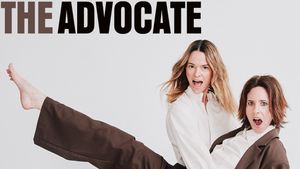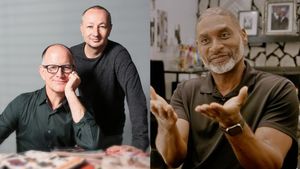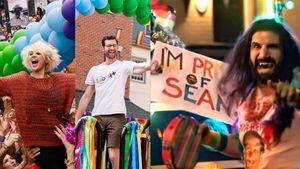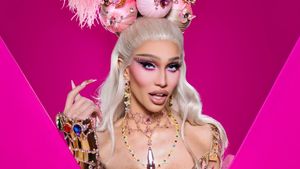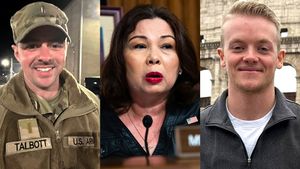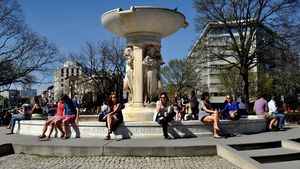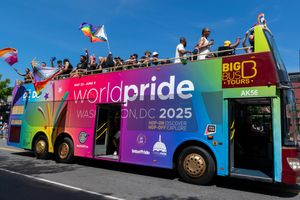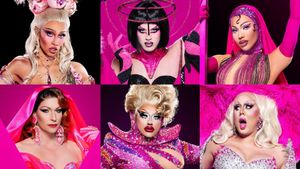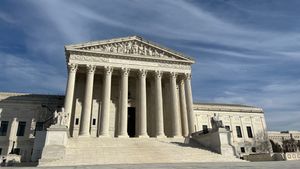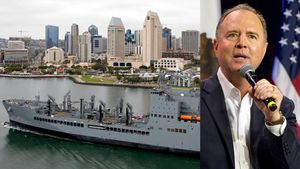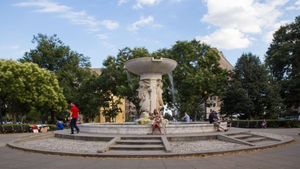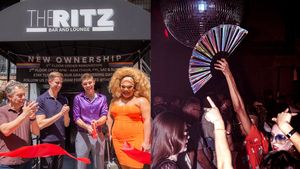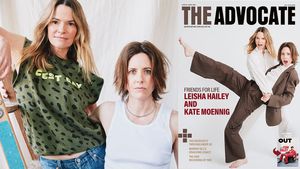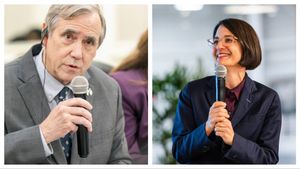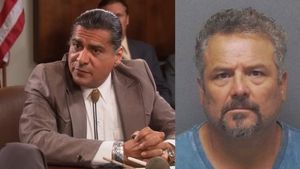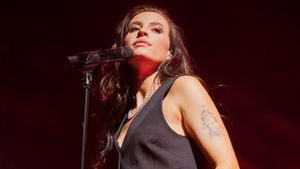LGBT History Month in my home city of Norwich, England consisted of a weeks-long celebration of music, poetry, art, radio performances and lectures by prominent LGBT activists amongst other things. It was my first year of being part of a collective known as Pride Punk Picnic, the alternative, rebellious, kid sister of the official Norwich Pride. Main founder, Maddi Cassell, explains how the collective was born:
I come from a background of grass-roots activism, and co-operative working and living. As amazing as it was to return to my home town and be part of Norwich's first Pride celebrations, I wanted something that reflected my life, my values and politics, and it seemed like a lot of other people did too. Being gay isn't just about bars and clubs; it's about families, friends, music and community. The Pride Punk Picnic projects, for me, are about including everyone.
Celebrating our history shows that much headway has been made in the fight for equality, yet we still have a long way to go. We need to take the baton and continue to raise awareness and educate. Our collective decided an event called Underground: Norwich Against Homophobia would be a great way to do just that. As a member of Pride Punk and Dandelion and the Rockets -- one of the bands performing at Underground -- I found the reactions we received when promoting the event were both encouraging and disheartening. We had support from Future radio, which invited the band to perform and plug the event on their station.
Local independent businesses donated items to be raffled. When attending the launch party for LGBT History Month we spoke to some prominent members of the gay community, people who many of us had turned to when coming out, for support and advice.
Surprisingly, many greeted Underground with amusement and disparaging remarks. When I explained to one woman that the event was about raising awareness of homophobia she replied, "I know what homophobia is so why would I want to attend?” I was taken aback by this and said that we needed to raise awareness in the community as a whole. If we only reached a few people, leading to greater understanding, then maybe we could help counteract bullying and the increasing rate of suicide amongst our community especially teenagers. The apathy amongst these people was overwhelming, predominantly because we were doing something that didn’t fit into their ideological view of gay culture.
Furthermore, it appeared the more old-school gay community was not interested, as they felt that ‘punk’ was not their thing. Again it was not an event that was so closely defined. Yes, the headline band was the established punk band the Restarts, but we provided a range of musical tastes with acoustic and folk sets throughout the day, DJ’s tents outside and flamenco gypsy punk in the evening leading up to our headliners. We didn’t book exclusively gay artists; it was just important that the performers believed in equality and the freedom to be who you are. The acts donated their time and energy without charge and many brought their own following to the event, allowing us to reach a wider audience. It seemed strange that punk/alternative and gay culture were at odds with each other.
More on next page...
\\\
(continued)
Kieran Plunkett, bass player and vocalist in the headlining band, the Restarts, touched on this notion saying, “Punk Rock is meant to embrace alternative lifestyles (supposedly) but you will find pockets of resistance against this ideology in certain scenes that aren’t comfortable with queer culture.”
Coming out within the punk culture in an established band gave Kieran the opportunity to educate people about homosexuality. Speaking about this transition he said, “I won a lot of people over who had never associated with a gay person before. Their attitude was 'Well I like your band, so I guess I am okay with the fact that you are gay!'” He went on to say that the coming out process has changed and people don’t want to accept being part of an established gay culture that does not fit who they are; they want the freedom to stay within the same social circles. "This is expanding the fight into new territory. We are bringing the fight to THEM."
What did the event achieve? We achieved a gathering of people from so many different communities, ages and backgrounds. There was no violence or trouble, and people were respectful of each other. I was proud to perform on a stage to an audience so diverse that were learning about each other’s differences and similarities and also to share a stage with an eclectic mix of performers with a common goal.
People have a fear of the unknown and we need to be visible as a community of individuals rather than a stereotyped group. This will enable us to show the future generations of our community that you can still be who you truly are. Being gay doesn’t have to change everything and that homophobia and discrimination are never acceptable. Apathy is rife and change will not happen if we refuse to stand up for who we are.
After eloquently delivering an on stage political speech, Maddi was greeted by a male punk who shook her by the hand and said he had only turned up to see the Restarts. “After hearing about the many gay rights issues raised by the bands, compeers and posters on the wall, he said he was now a fully fledged supporter of the cause.” Maddi added, “If just one more person is going to go back out there and fight homophobia, along with prejudice of any kind, then the Pride Punk Picnic collective have made the world just a little better place.”
Photo Credit: Jenny Allwood and Alex Jessop.
Follow SheWired on Twitter!
Follow SheWired on Facebook!
Be SheWired's Friend on MySpace!









































